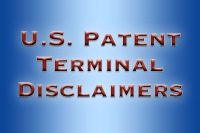Trade Secrets: A Basic Overview

Introduction
Most people have a general understanding that a “trade secret” is some type of secret information that has some commercial value to the person or company who has the secret information. A classic example is the secret formula for Coca-Cola. This general understanding is essentially correct, but the when it comes to trade secret protection the law is a bit more nuanced.
Different Laws Can Apply
The first thing to understand about trade secret law, is that there is not just one single trade secret law that may apply in the United States. Specifically, there are laws at both the federal and state level for protecting trade secrets that could apply in a particular situation. However, a trade secret is typically defined very similarly under state law, as it is under federal law:
Federal Law
(3) the term “trade secret” means all forms and types of financial, business, scientific, technical, economic, or engineering information, including patterns, plans, compilations, program devices, formulas, designs, prototypes, methods, techniques, processes, procedures, programs, or codes, whether tangible or intangible, and whether or how stored, compiled, or memorialized physically, electronically, graphically, photographically, or in writing if—
(A) the owner thereof has taken reasonable measures to keep such information secret; and
(B) the information derives independent economic value, actual or potential, from not being generally known to, and not being readily ascertainable through proper means by, another person who can obtain economic value from the disclosure or use of the information;
Federal Statute - 18 U.S.C. § 1839(3)
State Law
(d) "Trade secret" means information, including a formula, pattern, compilation, program, device, method, technique, or process, that:
(1) Derives independent economic value, actual or potential, from not being generally known to the public or to other persons who can obtain economic value from its disclosure or use; and
(2)Is the subject of efforts that are reasonable under the circumstances to maintain its secrecy.
California Uniform Trade Secrets Act - Cal. Civil Code § 3426.1
So, as can be seen from the above, under both federal law and California state law to make a claim of ownership to a “trade secret” generally requires that a person or business be in possession of:
- Information;
- Where such information derives independent economic value from not being generally known to others who can obtain economic value from its disclosure or use; and
- The information has been the subject of reasonable efforts to keep it a secret.
This may all seem pretty straight forward, but in practice it can require significant effort to achieve. Specifically, it has been reported that in many cases, courts have found that information at issue did not constitute a “trade secret” because the person claiming ownership of a trade secret failed to sufficiently identify the trade secret, failed to protect the trade secret, or had publicly disclosed the alleged trade secret. Indeed, in quite a few cases an owner of an alleged trade secret was found to have not taken sufficient measures to keep the information a secret.
Unlike with patents, trademarks, and copyrights, there is no government agency to register a trade secret with. The burden is on the possessor of valuable information to make the necessary “reasonable efforts” to keep the valuable information a secret. What constitutes “reasonable efforts”? There are no bright-line rules that can be used to definitively establish whether particular measures are “reasonable”. It will always be a fact-specific inquiry based on the particular circumstances.
Trade secrets can be extremely valuable to a business enterprise. Unlike patent or copyright protection, trade secrets have no expiration date. So, for as long the information is economically valuable it can be protected as a “trade secret” provided the possessor of the information makes “reasonable efforts” to keep the information a secret.





